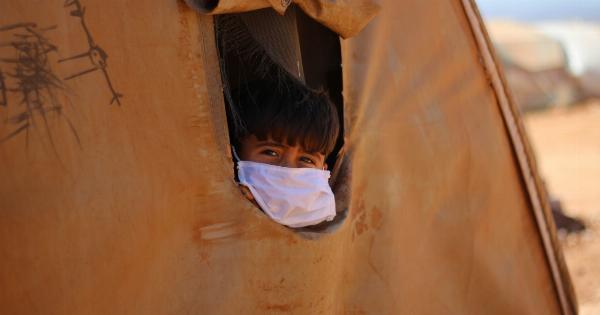Being a parent is a daunting task that comes with many challenges. As parents, we constantly strive to be the best we can be for our children. We want to protect them, guide them, and give them the tools they need to succeed in life.
However, in today’s world, we are also faced with a myriad of risks and uncertainties. Finding the right balance between protecting our children and allowing them to experience the world can be a delicate task. In this article, we will explore some strategies for being the perfect parent while navigating the risks that come with it.
Understanding the Risks
Before we delve into finding the perfect balance, it is crucial to understand the risks that our children face in today’s society. From online dangers to peer pressure, there are numerous threats lurking around every corner.
It is essential to be aware of these risks, as only then can we effectively protect our children from them.
The Importance of Boundaries
One key aspect of being the perfect parent is setting boundaries for your children. Boundaries provide a sense of structure and safety, helping children understand what is acceptable and what is not.
By establishing clear boundaries, you can protect your children from certain risks while still allowing them to explore within safe limits.
Encouraging Open Communication
Another crucial element of being the perfect parent is fostering open communication with your children. Encouraging them to talk to you about their fears, concerns, and experiences can help you better understand the challenges they face.
By creating a safe space for dialogue, you can address risks together and find appropriate solutions.
Teaching Critical Thinking
In a world filled with misinformation and fake news, teaching your children critical thinking skills is paramount.
By helping them develop the ability to evaluate information and make informed decisions, you can empower them to recognize and navigate through risks independently. Critical thinking is a lifelong skill that will benefit your children in all aspects of their lives.
Balancing Protection and Independence
While it is natural to want to shield our children from harm, it is equally important to allow them the freedom to grow and develop their independence. Overprotectiveness can hinder their ability to learn valuable life lessons and develop resiliency.
Striking a balance between protection and independence is key to raising well-rounded children who are prepared to face the world.
Staying Informed
To effectively manage the risks our children face, it is important to stay informed about current trends, technologies, and challenges.
Being aware of the latest online platforms, gaming trends, and potential risks can help us make informed decisions about what is appropriate for our children. Regularly educating ourselves on these matters allows us to adapt our parenting strategies accordingly.
Being an Active Role Model
Children often learn by observing their parents. Being a positive role model can significantly influence how they approach and navigate risks.
Show them how to handle difficult situations with grace, demonstrate healthy coping mechanisms, and be open about your own experiences. By being an active role model, you can empower your children to make wise choices and manage risks effectively.
Teaching Personal Safety
In addition to external risks, we must also teach our children about personal safety. Ensuring they understand basic safety rules such as crossing the road, interacting with strangers, and knowing emergency contact information is crucial.
Equipping them with these skills provides an added layer of protection, giving them the confidence to explore the world around them while staying safe.
Encouraging Healthy Risk-Taking
While risks can be associated with negative outcomes, it is important to differentiate between healthy risk-taking and reckless behavior.
Encouraging your children to step out of their comfort zones and try new things can foster personal growth and development. By supporting calculated risks, you teach them to assess potential outcomes and make informed decisions, ultimately building resilience and self-confidence.
Seeking Support
Parenting is not a journey that we have to navigate alone. Seeking support from other parents, friends, or professionals can provide valuable insights and guidance.
Sharing experiences and learning from others can help us gain a fresh perspective on how to balance risks effectively and be the best possible parents.
Conclusion
Balancing the risks of parenting is a continuous process that requires adaptability and an understanding of the changing world around us.
By setting boundaries, promoting open communication, teaching critical thinking, and balancing protection with independence, we can navigate the challenges of parenting more effectively. Staying informed, being a role model, teaching personal safety, and encouraging healthy risk-taking are also crucial aspects of striking the right balance.
Remember, seeking support from others who have gone through similar experiences can be invaluable in our journey towards being the perfect parent.






























